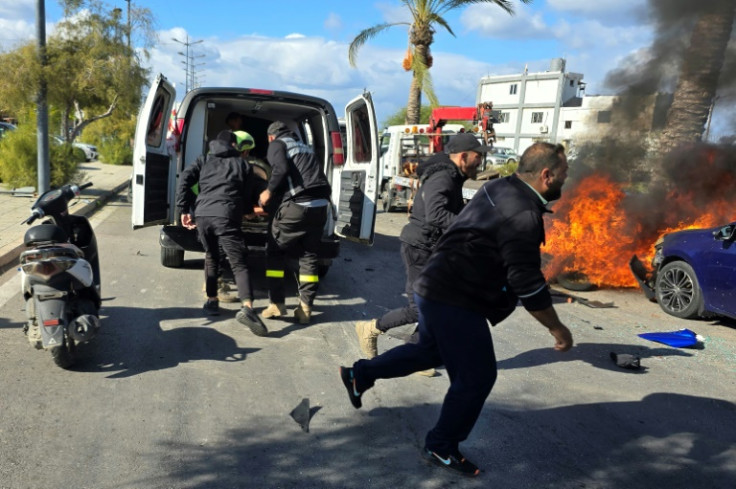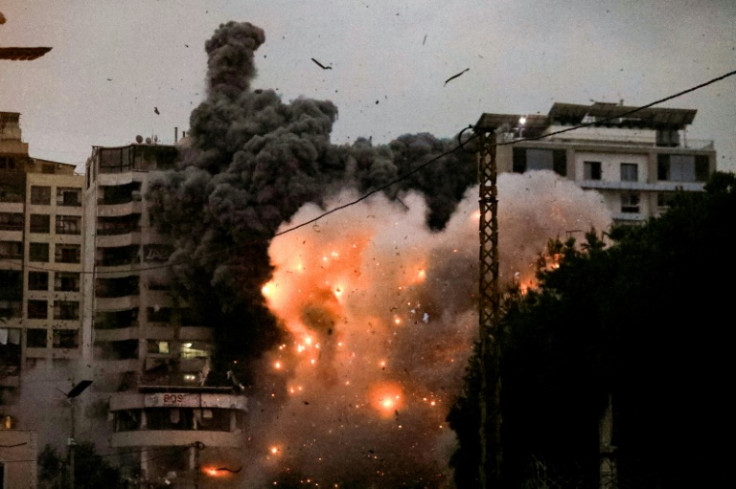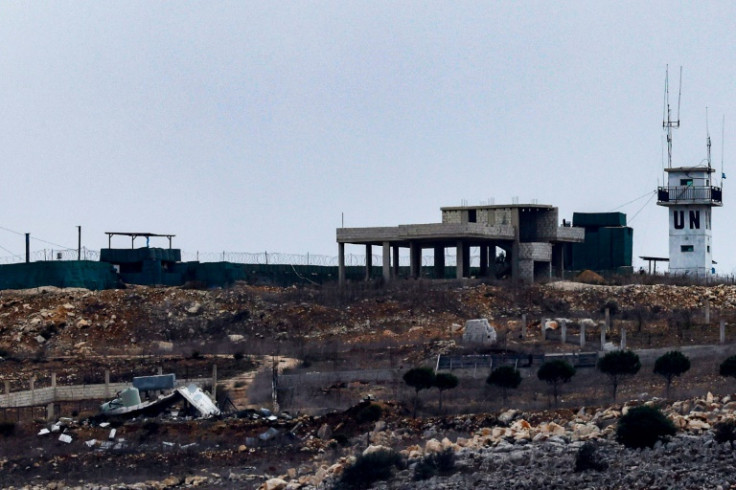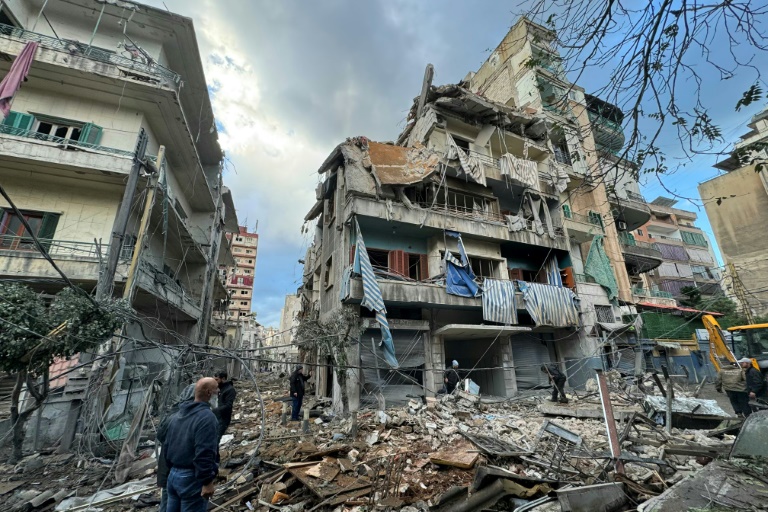Israel bombed Hezbollah’s Beirut stronghold on Monday and battles raged in Lebanon’s south after the Iran-backed militant group claimed 50 attacks on Israeli targets the day before.
The Israeli military said Hezbollah fired 250 projectiles into Israel on Sunday, part of a wave of attacks the militants said had targeted areas including the Ashdod naval base in southern Israel and military sites near Tel Aviv.
The military said on Monday that it had “conducted intelligence-based strikes on several Hezbollah command centres” in Beirut’s southern suburbs, a stronghold of the Iran-backed group, which Israel has repeatedly bombed since it escalated air strikes on September 30.
The military later reported having carried out attacks on 25 Hezbollah targets across the country in the span of an hour.
“Among the targets struck were the Executive Council’s command centres, and intelligence control and collection centres, where Hezbollah commanders and operatives were located,” the army said in a statement.
The strikes took place in Nabatiyeh, Baalbek, the Bekaa Valley, southern Beirut and the city’s outskirts, it said.
The strikes came after a weekend of heavy air raids in and around the capital’s south.
Lebanon’s education ministry suspended classes on Monday at schools, technical institutes and private higher education institutions in Beirut and a number of surrounding areas, citing “the current dangerous conditions”.
Israeli ground forces have also entered several villages and towns near Lebanon’s southern border, including Khiam, where Lebanese official media on Monday reported clashes with Hezbollah fighters.
In the southern district of Tyre, the Lebanese health ministry reported at least 12 people killed in a pair of Israeli attacks, one on a road near the city of the same name, and another in the nearby town of Maaraka.
The escalation came as the United States, European Union and United Nations pushed for a truce in a war that Lebanon says has killed at least 3,754 people in the country since October 2023, most of them in the last two months.
On Monday a senior UN official urged “the parties to accept a ceasefire” in Lebanon.
In Beirut on Sunday, top EU diplomat Josep Borrell called for an immediate ceasefire, after US envoy Amos Hochstein said last week that a deal was “within our grasp”.
Jean-Noel Barrot, the foreign minister of France — which along with the United States has spearheaded the efforts towards a truce — called on Israel and Lebanon on Sunday to seize a “window of opportunity” to negotiate an end to the fighting.
The US news site Axios reported that the parties were close to a deal that would involve a 60-day transition period in which the Israeli army would pull back, the Lebanese army would redeploy near the border and Hezbollah would withdraw its heavy weapons north of the Litani River.
The draft agreement also provides for the establishment of a US-led committee to oversee implementation, as well as US assurances that Israel can take action against imminent threats if the Lebanese military does not, according to Axios.
Israeli media also reported that Prime Minister Benjamin Netanyahu was likely to endorse a US ceasefire proposal.
Asked in New York whether Israel had accepted a ceasefire agreement, the country’s ambassador to the UN, Danny Danon, said “we are moving forward on this front”.
He said he assumed “that the cabinet will meet today or tomorrow to discuss it.”
The war in Lebanon followed nearly a year of limited exchanges of cross-border fire initiated by Hezbollah in support of its ally Hamas after the Palestinian group’s October 7, 2023 attack on Israel, which sparked the war in Gaza.
The hostilities between Israel and Hezbollah have killed at least 82 soldiers and 47 civilians on the Israeli side, authorities say.
The initial exchanges of fire forced tens of thousands of Israelis to flee their homes, which Israel says its campaign in Lebanon intends to rectify.
One displaced resident of Shlomi, an Israeli town near the Lebanese border, said she did not want to see a truce that would allow Hezbollah to regroup.
“I don’t want a ceasefire, because if they do it along the lines that they’ve announced, we’ll be in the same place in five years,” said 51-year-old teacher Dorit Sison.
“I am very pessimistic about this agreement… The only thing I want is for my daughter to sleep well at night, without (rocket) alerts, and for her not to be afraid of anything.”
Israel’s far-right National Security Minister Itamar Ben Gvir warned reaching a ceasefire deal in Lebanon would be a “historic missed opportunity to eradicate Hezbollah”.
“I understand all the constraints and reasons, and still it is a grave mistake,” he wrote on X.
Ben Gvir has repeatedly threatened to bring down the government if it agrees to a truce deal with Hamas in the Gaza Strip or Hezbollah in Lebanon.
Efforts this year by mediators to secure a truce and hostage-release deal in the Gaza war have failed. Qatar early this month said it was suspending its mediation role until the warring sides show “seriousness.”
With an intensive Israeli military operation in Gaza’s besieged north in its 50th day, remaining residents are left “scavenging among the rubble” for food, Louise Wateridge, spokeswoman for the UN agency for Palestinian refugees, UNRWA, told AFP.
AFP

AFP

AFP

AFP







